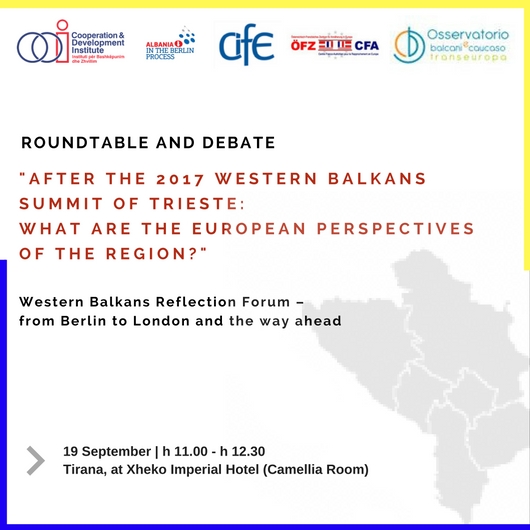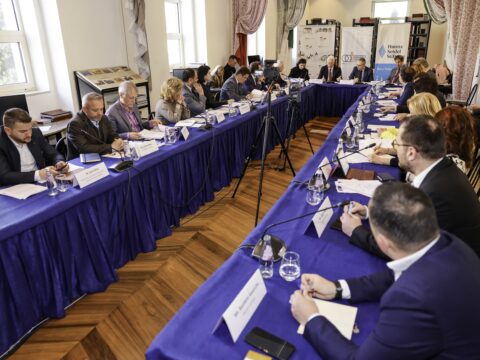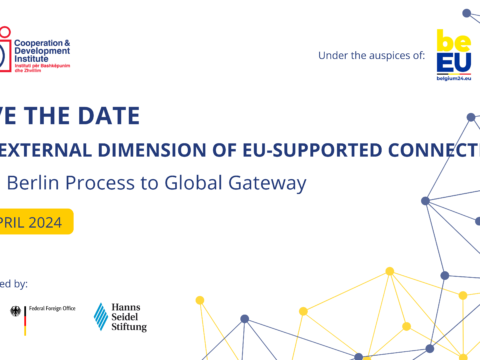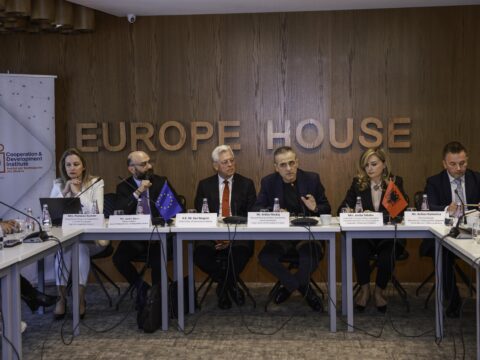Roundtable and Debate
h11.00-12.30 | 19 September 2017 | Tirana at Xheko Imperial
The 2017 Western Balkans Summit of Trieste, Italy was the fourth annual conference held in the framework of the Berlin process. It was attended by the heads of state or government, foreign ministers and the ministers of economy of Albania, Bosnia and Herzegovina, Kosovo, Macedonia, Montenegro and Serbia, Germany, Austria, France, Italy, the UK, Croatia, Slovenia, as well as by the EU High Representative Mogherini and Commissioner Hahn. The Italian hosts also invited the incoming Bulgarian EU Presidency to the meeting.
Four years ago, the Berlin process was launched so as to maintain the impetus of European integration in the region. Its initial objective was to further “real additional progress” in the region and to thereby support the EU’s enlargement strategy. The Summit of Trieste reconfirmed the EU’s commitment to support Western Balkan’s path into the EU. However, the implementation of previous commitments regarding by the EU on supporting WB6 on connectivity and growth, and by Western Balkans’ governments on keeping up the pace of reform, becomes ever more pressing. The Western Balkans Reflection Forum held in Trieste in June 2017 did highlight key issues regarding the implementation of these commitments as well as new challenges, rendering EU accession prospects less predictable.
What opportunities and what challenges does the Berlin process carry in its current form? How successful has it been in maintaining the impetus of a slowed-down accession process? What are the key areas for implementation, which the Berlin process should focus on, and how to best use the new modes of cooperation this intergovernmental initiative has introduced? More importantly, how does the Berlin process in its current approach intersect with the EU’s enlargement strategy and political agenda? What are the implications of the UK hosting the next Berlin Process summit in London in 2018?
Programme of the Event is available here






